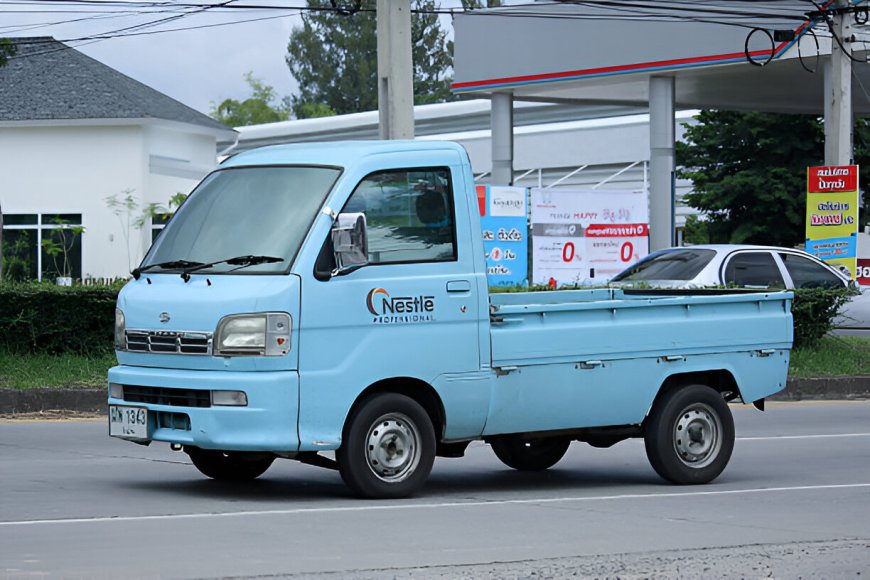How High-Quality Japanese Daihatsu Truck Parts Can Improve Vehicle Reliability
Boost your vehicle’s performance with genuine Japanese Daihatsu truck parts—ensuring reliability, durability, and long-term efficiency.

Daihatsu's engineering philosophy emphasizes extreme durability and efficiency in compact vehicles, making high-quality Japanese Daihatsu truck parts particularly valuable for owners seeking maximum reliability from their trucks. Japanese domestic market Daihatsu parts often exceed export specifications through enhanced materials, tighter manufacturing tolerances, and additional quality control measures. Understanding these differences helps truck owners make informed decisions about repairs and upgrades that can significantly extend vehicle life and reduce maintenance costs over time.
Engine Component Superiority
Daihatsu's Japanese market engines utilize different piston ring materials and coatings that provide superior seal integrity and reduced oil consumption. These components typically last 50,000-80,000 miles longer than export-grade equivalents while maintaining consistent compression ratios throughout their service life.
Valve train components from Japanese suppliers feature enhanced surface treatments and metallurgy that resist wear under high-mileage conditions. Camshafts, rocker arms, and valve springs manufactured for the Japanese market often include additional hardening processes that aren't cost-effective for global distribution.
Timing chain systems represent one of the most significant upgrade opportunities. Japanese market timing chains use different link materials and tensioner designs that provide more consistent timing control and resist stretch over extended service intervals.
Transmission and Drivetrain Enhancements
Daihatsu's manual transmissions benefit significantly from Japanese market gear oil specifications and internal component upgrades. Synchronizer rings made from Japanese bronze alloys provide smoother shifting and longer service life compared to standard export components.
Differential assemblies from Japanese suppliers often include enhanced bearing races and seal materials that better resist contamination and wear. These improvements become particularly important in commercial applications where trucks operate under constant load conditions.
CV joints and axle assemblies manufactured for Japanese market vehicles typically use superior boot materials and grease formulations that extend service intervals significantly. The harsh Japanese inspection system (Shaken) drives manufacturers to build components that reliably last between mandatory inspection periods.
Fuel System Optimization
Japanese market fuel pumps and injectors are calibrated for different fuel quality standards and often provide more precise fuel delivery than export versions. This precision translates to better fuel economy and reduced emissions over the vehicle's lifetime.
Fuel filters from Japanese suppliers typically use different filtration media that capture smaller contaminants and resist degradation from ethanol-blended fuels. The enhanced filtration protects downstream components and maintains fuel system cleanliness longer.
Carbon canister systems and emission control components designed for Japanese regulations often exceed requirements in other markets, providing better long-term reliability and consistent emissions performance throughout the vehicle's service life.
Electrical System Reliability
Daihatsu's electrical components benefit from Japanese manufacturing quality standards that emphasize connector reliability and wire harness durability. Japanese market alternators and starters often include enhanced bearing materials and improved brush designs that extend service life.
Ignition system components from Japanese suppliers typically use platinum or iridium electrode materials that resist fouling and maintain consistent spark characteristics for extended periods. These materials cost more initially but reduce maintenance requirements and improve fuel efficiency.
Wiring harnesses manufactured for Japanese vehicles often use different insulation materials and connector designs that better resist corrosion and environmental degradation. This becomes particularly important in vehicles exposed to road salt or harsh operating conditions.
Cooling System Improvements
Japanese market radiators and cooling components often feature enhanced corrosion resistance and improved heat transfer efficiency. These improvements result from stricter Japanese environmental regulations and quality expectations that drive continuous engineering improvements.
Thermostat designs from Japanese suppliers typically provide more precise temperature control and faster response to engine load changes. This precision helps maintain optimal operating temperatures under varying conditions, reducing engine wear and improving efficiency.
Water pump assemblies from Japanese manufacturers often include upgraded bearing materials and impeller designs that provide longer service life and more consistent coolant flow. These improvements become particularly valuable in commercial applications where cooling system failure can result in expensive downtime.
Quality Control and Manufacturing Standards
Japanese manufacturing processes typically include additional quality checkpoints and statistical process control measures that reduce part-to-part variation. This consistency means Japanese parts perform more predictably and integrate better with existing vehicle systems.
Material traceability systems used by Japanese manufacturers provide detailed documentation about component materials and manufacturing processes. This documentation helps identify the source of any quality issues and ensures consistent replacement part quality over time.







